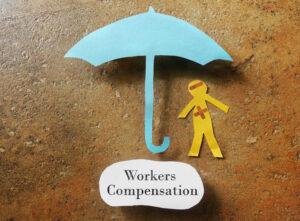

Photo Credit: zimmytws / Shutterstock.com
Chicago is one of the largest and most diversified cities in the United States. This means that while there are plenty of opportunities for jobs, there are also countless ways that Illinois workers may find themselves injured and in need of workers’ compensation benefits.
The seasoned Illinois work injury lawyers at Therman Law Offices have handled a wide variety of claims and understand how to navigate the process smoothly and efficiently while protecting your rights. There are some instances in which Illinois law allows an injured worker to pursue a civil claim against the persons or companies responsible for his or her injuries, but in most situations, the workers’ compensation claim system is considered the injured worker’s exclusive remedy.
Recently, an Illinois appellate court considered an appeal involving an injured worker’s claim for benefits and whether he could file a civil claim against one of the involved parties. The plaintiff was injured in October 2007 while cleaning a machine at a plastics manufacturing company.
He filed suit against many different parties and all but one of the defendants was eventually dismissed or removed from the dispute due to a settlement agreement with the plaintiff. The remaining defendant, a tool company, eventually filed a motion for summary judgment claiming that it was entitled to judgment as a matter of law on plaintiff’s causes of action. In the alternative, it argued that even if the company was involved in a joint venture with the plaintiff’s employer, the workers’ compensation system was the plaintiff’s exclusive remedy.
The key provision of the Illinois Workers’ Compensation Act provides that no common law or statutory right to seek damages from an employer, insurer, or broker, or the employees or agents of any of these parties for injury or death incurred during the course and scope of duty is available to an injured worker. The court agreed with the tool company and granted its motion for summary judgment. The plaintiff appealed and the reviewing court reversed, finding that there was a genuine issue of fact regarding whether the tool company and plaintiff’s employer were engaged in a joint venture.
It also noted that the court erred by raising the issue of exclusivity on its own and that this is deemed an affirmative defense that the parties must raise or forfeit. The court noted that the litigation had proceeded for five years and that over 40 depositions were taken, which indicated that the defendant had waived its right to assert the exclusivity provision as an affirmative defense.
If you were injured at work, it is critical that you speak to a seasoned Illinois workers’ compensation attorney as soon as possible.
As this case demonstrates, it can be incredibly confusing to understand whether to bring a civil claim or whether to seek workers’ compensation benefits.
Both systems have intricate rules and requirements that can be hard to navigate when you are also coping with painful injuries and disruption in your life. Our team of Chicago workers’ compensation lawyers is standing by to help ensure that you receive the just outcome that you deserve and that your rights are asserted at every step of the way. Call us today at 773-545-8849 or contact us online to get started.
Related Posts





